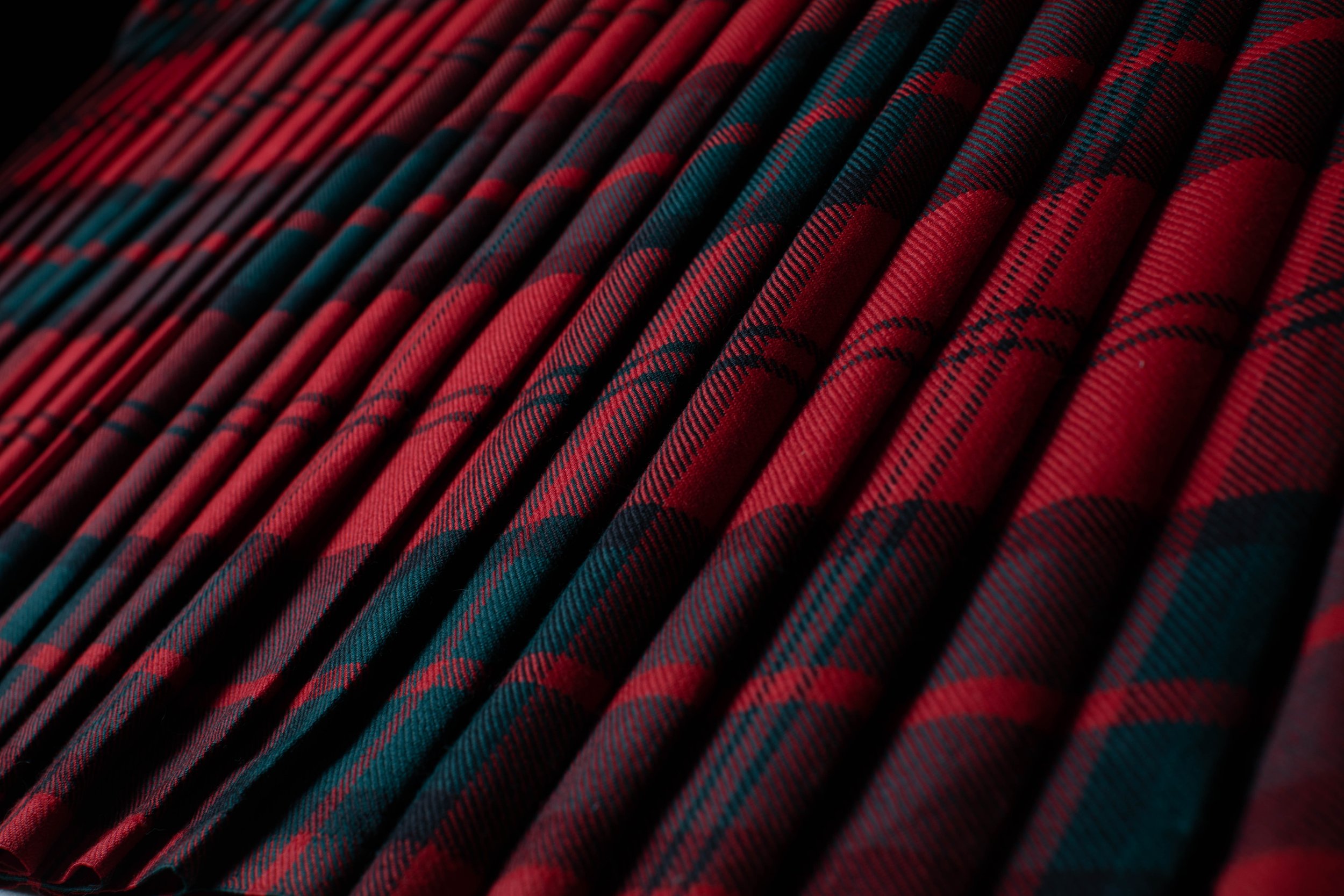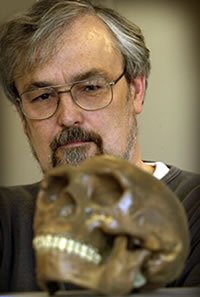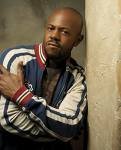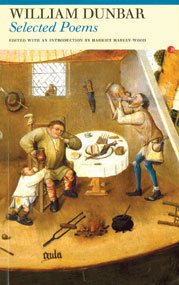
Notable Dunbar’s
(1800 - Present)
Robin Ian MacDonald Dunbar (born 1947, Liverpool)
Robin is a British anthropologist and evolutionary biologist, specialising in primate behaviour. He is best known for formulating Dunbar's number, roughly 150, a measurement of the "cognitive limit to the number of individuals with whom any one person can maintain stable relationships".
Amanda Dunbar - Artist
At just 18 years old, Amanda is a world class painter who has been featured on Oprah twice and her paintings hang in galleries from New York City to California. Often compared to Auguste Renoir and Norman Rockwell, Amanda has made an impact on the art world that is nothing short of astonishing.
Huey Dunbar - Musician
Puerto Rican/Jamaican-descendant singer Huey Dunbar was convinced to get involved in tropical music by arranger/producer Sergio George after performing in a talent contest. During the following two years the young artist improved his natural skills, in addition, he learned how to speak and sing in Spanish. Soon, debuting as a backup singer for Yolandita Monge, participating in India's 1994 Dicen Que Soy album, and singing along with Víctor Manuelle. In 1996, Huey Dunbar joined tropical-club/dance act DLG (Dark Latin Groove), singing alongside James de Jesús and Wilfredo Crispin, also known as Fragancia, climbing to the top of the Latin charts with a song called "No Morirá." After issuing Swing On and Grammy nominated Gotcha, Huey Dunbar made his first solo record called Yo Si Me Enamoré.
Bonnie Dunbar - Astronaut
A native of the small, south-central Washington rural community of Outlook, Dunbar earned bachelor's and master's degrees in ceramic engineering from the University of Washington in Seattle and a doctorate in mechanical/biomedical engineering from the University of Houston. She held research and engineering positions with the Boeing Co., Harwell Laboratories and Rockwell International until 1978, when she joined NASA as a flight controller. Two years later, in 1980, she was selected as a NASA mission specialist astronaut.
Rockmand Dunbar - Actor
Rockmond Dunbar was born on January 11, 1974, in Oakland, California, and studied at Morehouse College and the University of New Mexico.
Rockmond made his film debut in 1998's "Misery Loves Company" and later had roles in "Punks" and "Kiss Kiss, Bang Bang." He also made television guest appearances on "Felicity," "The Pretender" and "North Shore," but he is most famous for his roles as Kenny Chadway in "Soul Food" and as Benjamin Miles 'C-Note' Franklin on Fox's "Prison Break." Rockmond also directed, produced and starred as himself in the film "The Great Commission" in 2003.
Joyce Dunbar - Author
Joyce was born in Lincolnshire, one of four children of a steel worker and a fishing net maker. She read for an English degree at Goldsmiths' College, London, and worked in Further Education for many years before becoming a full time writer in 1989. She has written over seventy books for children, translated into many languages. Most of them are picture books, including the best selling TELL ME SOMETHING HAPPY BEFORE I GO TO SLEEP, illustrated by Debi Gliori.
Adrian Dunbar - Actor
A native of Northern Ireland Adrian Dunbar got his dramatic schooling and made his film debut in the short "Unusual Ground Floor Conversation" (1987). Dunbar appeared in many stage productions ("Real Dreams", "The Danton Affair", "Ourselves Along", "Pope's Wedding" and "By the Border") while also building up his films credits. He appeared in supporting roles in the British-made dramas "A World Apart" and "The Dawning" (both 1988), played one of Daniel Day-Lewis' many brothers in "My Left Foot" (1989), and began earning larger roles in the dramas "Dealers" and "Drowning in the Shallow End" (both British-made, 1989).
On TV, Dunbar has appeared in the seventh "Inspector Morse" installment (PBS, 1994), the A&E movie "Cracker: The Mad Woman in the Attic" (1994) and as Emma Thompson's unsympathetic husband in the ghostly "The Blue Boy" (PBS, 1994).
Ellen Dunbar - Designer
Ellen Dunbar left Liberia in the midst of civil unrest and news of impending war to start a new life in the United States. During her early years in the U.S. she worked in the healthcare industry and free-lanced as a fashion designer. She was a negotiator at Concentra Preferred Systems until last summer when she made a decision to devote her time to creating opportunities for African women.
The eldest daughter among fourteen children and groomed for many years to make decisions affecting those around her, it is no wonder that the Miss Africa International and Miss Africa Diaspora pageants are products of her creative imagination.
George W. Dunbar
In 1923, George W. Dunbar founded New England's first armored car company, Mercer & Dunbar. In 1956, James L. Dunbar continued the family tradition of serving America's security needs when he founded Dunbar Armored (formerly named Federal Armored Express). Since then, the Dunbar name and their symbolic Red and Black armored trucks have become synonymous with security.
Matilda Dunbar (1848 - 1943)
Native of Kentucky and former slave, Matilda Jane Dunbar, wife of Joshua Dunbar, was a remarkable woman. Mrs. Dunbar taught her beloved son, Paul Laurence Dunbar, a love of songs, storytelling, poetry and reading. Paul died in her arms on February 9, 1906. She was a devoted mother and a great influence on her son.
Paul Laurence Dunbar - Poet (1872 - 1906)
Paul Laurence Dunbar was the first African-American to gain national eminence as a poet. Born in 1872 in Dayton, Ohio, he was the son of ex-slaves and classmate to Orville Wright of aviation fame.
Although he lived to be only 33 years old, Dunbar was prolific, writing short stories, novels, librettos, plays, songs and essays as well as the poetry for which he became well known. He was popular with black and white readers of his day, and his works are celebrated today by scholars and school children alike.
His style encompasses two distinct voices -- the standard English of the classical poet and the evocative dialect of the turn-of-the-century black community in America. He was gifted in poetry -- the way that Mark Twain was in prose -- in using dialect to convey character.
After Dunbar's death in 1906 his mother, Matilda Dunbar, continued to live in the house until her death in 1934. In 1936 the Dunbar house became the first state memorial to honor an African American.
Robert Dunbar
Manitoba’s first outstanding curler was born in Nova Scotia. An all-round athlete who excelled in track and field, ice skating, and roller skating, Robert H. (Bob) Dunbar was introduced to curling after he moved to Winnipeg in the late 1870s. Dunbar perfected the forerunner of the sliding delivery, a lower profile release utilizing more leg drive and a short forward follow-through. He also departed from the basic draw game to concentrate on a take-out style that soon became a recognized staple of curling in Manitoba.
David Dunbar Buick (1854 - 1929)
David was a Scottish born American inventor best known for founding the Buick Motor Company. He was born in Arbroath, Angus, Scotland moving to Detroit, Michigan at the age of two when his parents emigrated to the United States.
Henry David Thoreau (1817 – 1862)
Born David Henry Thoreau was an American author, naturalist, transcendentalist, tax resister, development critic, and philosopher who is best known for Walden, a reflection upon simple living in natural surroundings, and his essay, Civil Disobedience, an argument for individual resistance to civil government in moral opposition to an unjust state. David's mother is of Dunbar descendant of Robert of Hingham.
Robert Dunbar - Engineer
Born in Scotland in 1812, Dunbar arrived in Buffalo in 1834, after having studied mechanical engineering in Canada. At the time of his death in 1890, Dunbar was eulogized as "the father of the great grain elevator system." His inventions had made possible "all the present improvements of elevators," proclaimed the Buffalo Commercial Advertiser.
Duncan Dunbar (1803 - 1862)
Duncan Dunbar established a business in London, and with his son built up a sailing-ship empire which traded all over the world from Dunbar Wharf, Limehouse.
William Dunbar (ca. 1750-1810).
William Dunbar, scientist, and explorer, son of Sir Archibald and Anne (Bayne) Dunbar, was born in Morayshire, Scotland, about 1750. Dunbar invented a screw press and with its use introduced square cotton bales as a means of packing cotton. He was the first to suggest the manufacture of cottonseed oil. He was surveyor general in the Natchez area in 1798 and made the first meteorological observations in the Mississippi Valley in 1799. In 1804 he was appointed by President Thomas Jefferson to head an expedition with Dr. George Hunter. They were to explore the Ouachita River region and travel all the way to the source of the Red River.He made scientific reports on the Indian sign language, animal and plant life, fossils, and astronomical phenomena in the area. He was later chief justice of the Mississippi Court of Quarter Sessions and a member of the Mississippi Territorial Legislature.
William Dunbar (ca. 1460/65 - 1530) Scotland
Middle Scots poet attached to the court of James IV who was the dominant figure among the Scottish Chaucerians in the golden age of Scottish poetry.
He was probably of the family of the earls of Dunbar and March and may have received an M.A. degree from St. Andrews in 1479. It is believed that he was a Franciscan novice and travelled to England and France in the King's service. In 1501 he was certainly in England, probably in connection with the arrangements for the marriage of James IV and Margaret Tudor, which took place in 1503. In 1500 he was granted a pension of £10 by the King. By 1504 he was in priest's orders, and in 1510 he received, as a mark of royal esteem, a pension of £80. In 1511 he accompanied the Queen to Aberdeen and celebrated in the verse “Blyth Aberdeen” the entertainments provided by that city. After the King's death at the Battle of Flodden (1513), he evidently received the benefice for which he had so often asked in verse, as there is no record of his pension after 1513.
With few exceptions the more than 100 poems attributed to Dunbar are short and occasional, written out of personal moods or events at court. They range from the grossest satire to hymns of religious exaltation. Of his longer works, some are courtly Chaucerian pieces like the dream allegory The Goldyn Targe, which wears its allegory very lightly and charms with descriptive imagery. The Thrissill and the Rois is a nuptial song celebrating the marriage of James IV and Margaret Tudor.
In a quite different vein, the alliterative Flyting of Dunbar and Kennedie is a virtuoso demonstration of personal abuse directed against his professional rival Walter Kennedy, who is, incidentally, mentioned with affection in The Lament for the Makaris, Dunbar's reminiscence of dead poets. Dunbar's most celebrated and shocking satire is the alliterative Tretis of the tua mariit Wemen and the Wedo (“Treatise of the Two Married Women and the Widow”).
Dunbar's versatility was astonishing. He was at ease in hymn and satire, morality and obscene comedy, panegyric and begging complaint, elegy and lampoon. His poetic vocabulary ranged through several levels, and he moved freely from one to another for satiric effect. He wrote with uncommon frankness and wit, manipulating old themes and forms with imagination and originality. Like other Scots poets after him—notably Robert Burns—he was a vigorously creative traditionalist. In artistry and range, though not in humanity, he was the finest of Scotland's poets.
Celebrity Mentions in Entertainment
Stalag 17 - 1953 - Lieutenant James Dunbar - Don Taylor
Stalag 17 is a 1953 American war film which tells the story of a group of American airmen confined with 40,000 prisoners in a World War II German prisoner of war camp "somewhere on the Danube". Their compound holds 630 Sergeants representing many different air crew positions, but the film focuses on one particular barrack, where the men come to suspect that one of their number is an informant. The film was directed and produced by Billy Wilder who, with Edwin Blum, adapted the screenplay from the Broadway play of the same name. The play was written by Donald Bevan and Edmund Trzcinski, based on their experiences as prisoners in Stalag 17B in Austria. William Holden won the Academy Award for Best Actor in a Leading Role.
The film stars William Holden along with Don Taylor, Robert Strauss, Harvey Lembeck, Peter Graves, Neville Brand, Richard Erdman, Michael Moore, Sig Ruman, and Otto Preminger. Strauss and Lembeck appeared in the original Broadway production.
Dances with Wolves - 1990 - Lieutenant John Dunbar - Kevin Costner
Dances with Wolves is a 1990 American epic western film starring, directed, and produced by Kevin Costner in his feature directorial debut. It is a film adaptation of the 1988 novel Dances with Wolves by Michael Blake—itself originally a spec script—that tells the story of Union Army Lieutenant John J. Dunbar (Costner), who travels to the American frontier to find a military post, and who meets a group of Lakota.



















